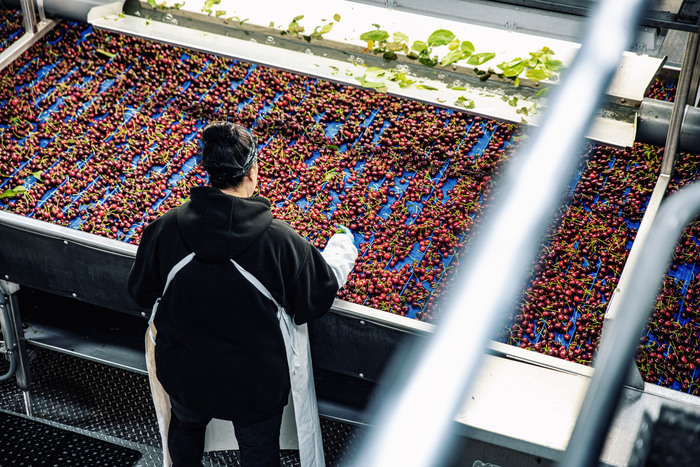
Why is oil free air critical in industries such as food and beverage? In any industry where compressed air is used, the compressed air directly or indirectly comes into contact with the product being manufactured. In the food and beverage industry, this means the packaging or containers holding the food or beverage, or even direct contact with the food and beverage products themselves. Think fruits and vegetables.
This makes it especially important that the air coming into contact with the products we ingest meets certain standards. The International Standards Organization (ISO) 8573.1 Air Quality Classes for compressed air outlines the contaminants allowed by class. Oil free applications require Quality Classes “1” or “0” for total oil concentration. Less than 0.01 mg/m³ (Class 1) is the most common specification. If a plant wants to specify a lower oil concentration, then the specification is Class 0.
Class 0 air is anything less than Class 1, as agreed upon between the manufacturer and the user. Class 0 is also the standard that Sullair Oil Free Compressors meet, including in the DSP Series, SRL Series, DS-13 and Centrifugal compressors.

In the food and beverage industry, compressed air can be used in a variety of capacities, such as conveying/transporting product, bottle/container blowing, automation, fermentation and for air tools. Some food and beverage manufacturers choose to use lubricated, or oil flooded, screw compressors due to the lower upfront cost of the machines. Even though, with proper filtration, these compressors may be able to deliver a very low amount of oil carryover, there is always the risk of a catastrophic event. Namely, if the filters aren’t maintained properly, or if there is an issue causing oil to pass through, the oil from the compression chamber has the risk of making it downstream; and therefore coming into contact with the end product. Oil contamination can have even greater consequences, such as production stoppage, product spoilage and even FDA violations requiring plant shutdowns.
Air purity is especially critical in the food and beverage industry because the products coming into contact with the air could impact the health and safety of the consumer. This is why many in the industry are proponents of not putting oil into the system in the first place. When using Oil Free technology, this risk is mitigated. There is no lubricant within the compression chamber, which eliminates the ability for additional oil to be passed downstream and come into contact with the food or beverage product. Using Oil Free technology ensures the quality of the user’s product as it is intended.
Both oil free and lubricated air compressors take in the contaminants within the ambient air. For this reason, maintaining appropriate filtration is critical, regardless of the technology used. For example, if the air the compressor is ingesting is full of oil from a nearby process, then after the air is compressed, it will still hold those contaminants. Using the correct filter microns and air treatment can help to “clean” the air before it goes downstream and comes into contact with the product.
A growing segment of the food and beverage industry is realizing why oil free air is critical. The prevailing trend is they’re choosing not to introduce oil in the first place, thereby minimizing their risk of production down-time, product spoilage or even reputation of their brand.
Use the checkboxes to select the types of cookies you want to accept, then press the “Save Settings” button. View our Privacy Policy.